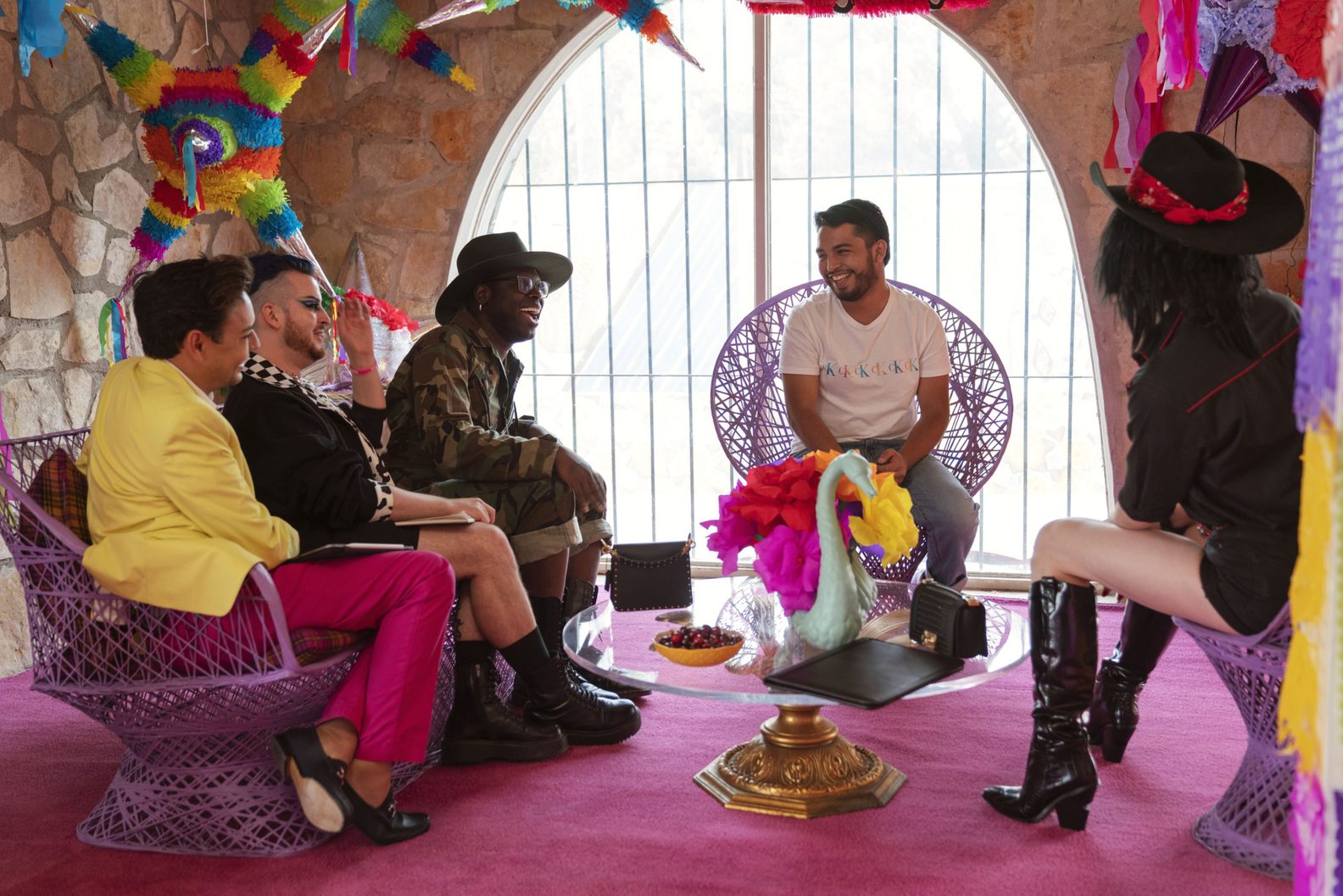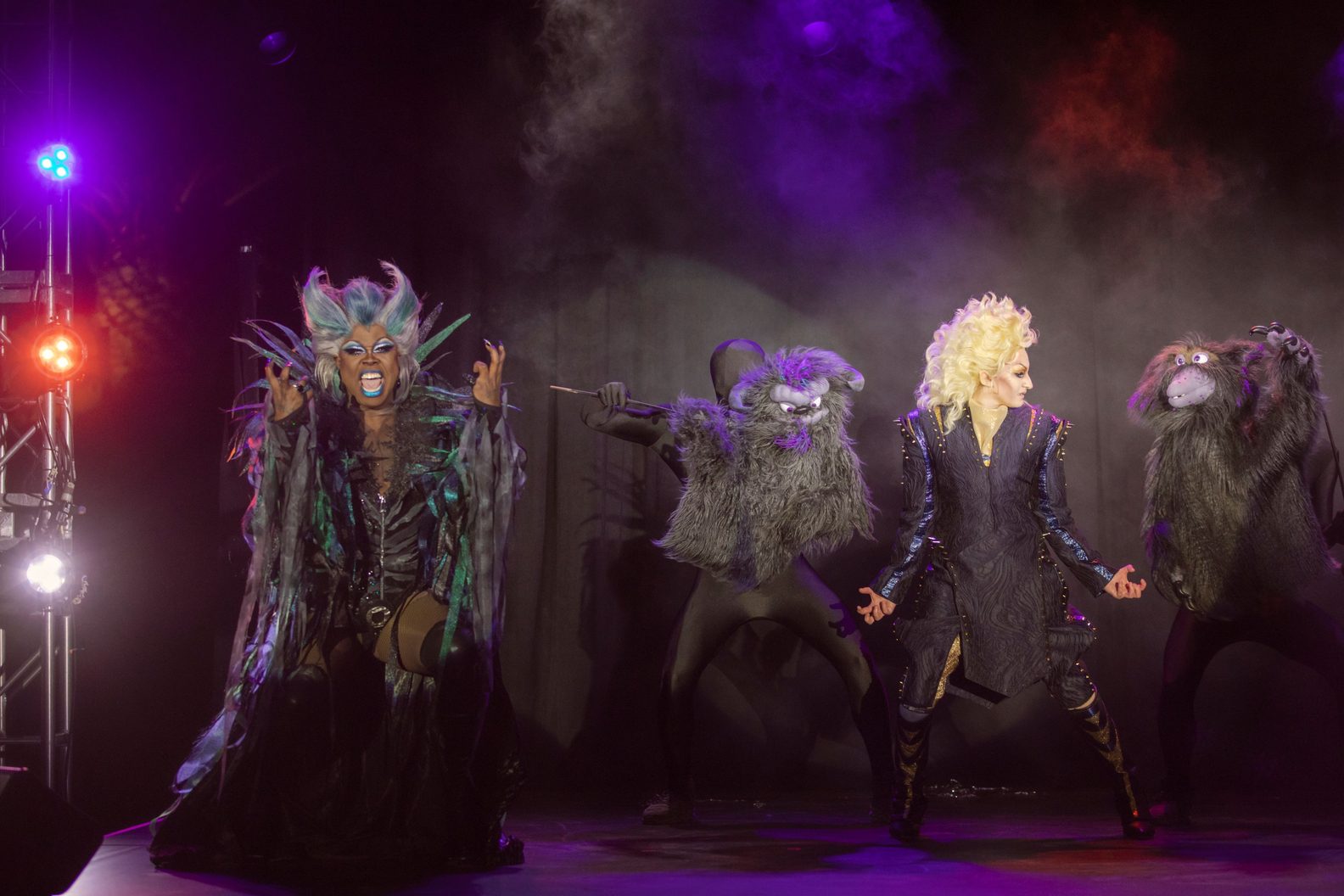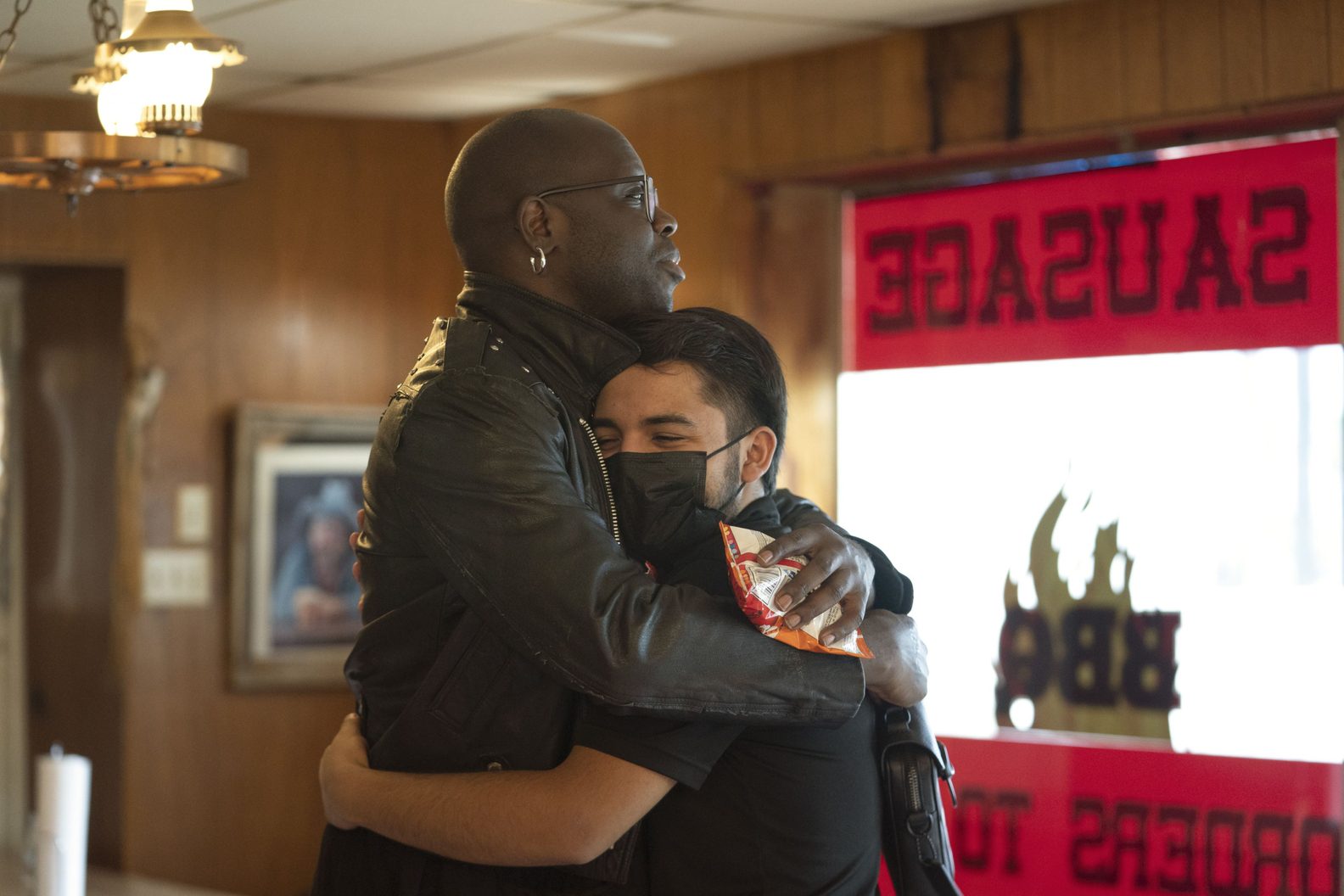As Season 2 of We’re Here kicks off on HBO on October 11th, we are seeing some of our favorite drag performers again traveling the country dispensing their own unique version of wisdom and fierceness. The challenges of filming a show like this during a pandemic notwithstanding, viewers can expect the same kind of heartwarming stories (and sickening performances) that they got during Season 1. Bob The Drag Queen & I recently got to sit down to chat about the new season of the much buzzed about HBO docu-series, the cultural impact of the podcast Sibling Rivalry that Bob does with friend and collaborator Monét X Change, and why the days of being a New York City drag performer will always be time that Bob The Drag Queen recalls fondly.
https://www.instagram.com/p/CUNeaXIpqsQ/?utm_source=ig_web_copy_link
Michael Cook: Congratulations on Season 2 of We’re Here, truly one of the most important shows airing today. How does it feel to return?
Bob The Drag Queen: That is a broad question that I don’t have enough time to answer (laughs). It took ten months to film this season, so there were a lot of feelings involved in making season 2 of Were Here. Everything from joy to happiness to sadness to encouragement, there was a lot.
MC: Filming a show like We’re Here, a show that already has a great deal of heart, probably only served to bring you even closer together, is that fair to say?
BTDQ: I think that we were definitely being very safe and doing a lot of testing. I think that even outside of the pandemic, this is such a nuanced and personal and unique experience that it would be really hard not to come out of it close to the people that you have worked with.
https://www.instagram.com/p/CTnKFlYH8dP/?utm_source=ig_web_copy_link
MC: In We’re Here, you are traveling to different cities that may or may not be as accepting of drag and the culture that comes with it as other cities. Did you go into Season 2 with a fresh pair of eyes and lessons learned from Season 1?
BTDQ: I don’t know that in every small town, they are unaccepting of drag; in every town we have been in, we have had to turn people away. The thing about being in a small town is that you are typically surrounded by lots of other small towns. So the small towns around the small towns will come together and want to see and get a little taste of what is going on; that has felt really wonderful. There has been some dissent, people calling the cops on us, prayer circles happening outside of our shows, that has happened and you don’t get that a lot in larger cities. The thing is though, myself Shangela and Eureka are used to traveling around and doing drag, so it is not completely alien to us.
MC: You each made such monumental impacts with your subjects last season and this season promises more life-changing moments. Looking back, is there anyone that has chosen to continue to do drag after your departure?
BTDQ: I know Shangela’s drag kid from Branson I think, was doing some drag. I know that when I was in Twin Falls, Idaho, I had three drag queens who were already doing drag and I was able to encourage them to keep going with their own artistry for sure. I was able to meet a wonderful activist named Lady Shug in Farmington, New Mexico who was already a drag queen as well & an environmental activist & a civil rights activist for the people in the Navajo nation near Famington in Ship Rock. It has been wonderful to see how her career has been thriving as well.

MC: As a performer, you have always been a straight shooter and spoke honestly and truthfully in and out of drag. When you decided to do We’re Here, did you see it as an elevation of the activism you already exhibited?
BTDQ: I believe that when you are a marginalized person living at all, especially living well, it is a form of activism; it is an FU to the system. I am really proud of where my drag is today…honestly, what it is, I have a big mouth and I can’t shut it off. I don’t have the ability to shut up and know my place. There are probably times that it has gotten in my way and it has probably held me back in some aspects of my life. I can’t say that it has always worked out for me. Last night I was at dinner with a friend and my friend brought another friend and that started talking shit about Madonna. I thought to myself “I could let this go, but I am choosing not to”. It ended up ruining the mood & it was like “you are not going to sit here and talk shit about Madonna while I am trying to eat my omelette” (laughs)!
MC: Podcasts seem to be popping up every other day, but the one that you have with Monét X Change Sibling Rivalry, is truly like nothing we have ever seen. The banter you and Monét is truly the backbone of the entire podcast.
BTDQ: I love Monét is my sister, and my best friend, but I am gonna call her on her bullshit when she is messy and that is all the time (laughs)!
https://www.instagram.com/p/CLfa8BbB8XK/?utm_source=ig_web_copy_link
MC: The podcast seems to have gone from great deal of Drag Race talk to weaving in your real-life with family, activism, and some truly personal moments. You have even branched out to a Patreon page and live shows. Could you have ever seen what it would now become? You recently said that Sibling Rivalry could become the new Breakfast Club and I don’t think you were that far off.
BTDQ: I always thought that me an Monét had a really interesting bond. That is what made me call Monét and tell her that I had an idea for a podcast called Sibling Rivalry and we had to do it. Basically, of all of the Ru girls we have the longest running podcast; and it is really exciting. A fun fact that we never got to see come to fruition, Coronavirus was such a big issue this year, and anyone that had it was asked to leave set on We’re Here. In case myself, Shangela, or Eureka got Coronavirus we were asked who was going to replace us and my replacement was going to be Monét X Change. I got the vaccine and never got COVID, but there was a small chance so I am surprised Monét didn’t sprinkle some COVID in my coffee or something (laughs).

MC: The days of walking into a New York City bar and seeing a drag queen show was always a treat. Do you miss those days?
BTDQ: Pixie Aventura recently visited and we were reminiscing about those old days and hanging out in New York City and I do miss it. Going to a diner at 4am and taking the train home. You would go to the club until 4am, then you would go to the diner until about 6am, then you would take the train home. There would be a crossover where the drag queens would be going uptown and all of the people that have nine to five jobs were going downtown. There was always a great time on the subway platform when you see a raggedy drag queen next to a spiffed up lady in a suit skirt and she gives her that look like “sis” (laughs)?

MC: It has been a truly surreal year and a half for every single one of us. What are you taking away as a performer and a person from the last 18 months into the next phase of your life and career?
BTDQ: Well, I am thinking about accessibility and people who have access to drag and performances. There are people who can’t go to clubs because of where they live, or their disability. or their money, or because they have kids, but they love drag and never get to see it. Now that these drag performers have gone online, people are able to see them. I want to keep my digital footprint wide so that people who enjoy my artistry can still see it without having to leave their house; I know that some people just can’t for some reason and I want to keep that accessibility.
Follow Bob The Drag Queen on Instagram
